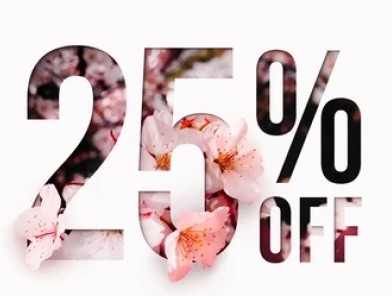When I was younger, I looked at sex workers, drag queens, trans people, lesbians, and gay men with confusion and yes, with judgment. I didn’t hate them, but I didn’t understand them either. I grew up surrounded by messages that made it easy to see these people as “other.” Jokes, stereotypes, fear-based warnings they all stuck with me. And like many, I absorbed it without even realizing how much harm it caused.
Then one night, everything shifted. I went to a drag show not with any great expectations, more out of curiosity than anything else. I thought I might laugh, or be surprised. What happened was something I didn’t see coming: I connected. Deeply. I met people who were kind, witty, honest, raw, vulnerable and incredibly strong. Some were sex workers. Some were gay, some lesbian, some trans. They welcomed me, and for the first time, I really listened.
Since then, some of those people have become close friends. As a woman, I can say I’ve never felt more safe and respected on a night out than I have in a queer space. There’s something disarming about being around people who have already faced so much and yet still show up with joy, humor, and courage.
That night changed me. It made me realize how easy it is to judge what you don’t know and how much you miss when you do. It’s not about political correctness. It’s about basic humanity. These are people. Complex, emotional, funny, resilient, brilliant people. And the truth is, many of them are far more emotionally intelligent, self-aware, and compassionate than most people I’ve met in more “acceptable” professions.
So I decided to write this. Not to moralize. Not to convince. Just to say: I used to see things differently. And now I don’t.
Sex Work: Beyond the Myths
Sex work is a broad and complex field. It includes escorts, porn actors, strippers, cam models, phone sex operators, erotic masseurs, sugar babies, dominatrixes, street-based workers, and content creators on adult platforms. Some work independently; others are part of larger networks or agencies. Some identify with the job as a calling, others as a means to an end.
The diversity within sex work is staggering. And yet, sex workers are often flattened into a single stereotype either victim or villain. This erases their humanity and their individuality.
In truth, sex workers are students, parents, artists, caregivers, trauma survivors, immigrants, breadwinners. They are people with complex motivations, backstories, boundaries, and dreams.
Emotional Intelligence: An Undervalued Superpower
There’s a common misconception that sex work is purely physical. But those who’ve worked in the industry or spent time listening to sex workers know that it demands a level of emotional intelligence that most people will never develop.
Sex workers often navigate intense emotional spaces. They hold space for clients in pain, loneliness, confusion. They intuit what’s needed, where boundaries lie, what’s safe, what’s healing. They manage expectations, desires, trauma, and trust. Many serve as unlicensed therapists, surrogate partners, confidants, fantasy creators, and protectors all at once.
These are not just transactions. They are human interactions at their most raw and honest.
Not Saints or Sinners Just People
Are there bad sex workers? Of course. Just like there are bad teachers, dishonest politicians, careless doctors, or cruel police officers. No profession is immune from flawed individuals.
But the idea that sex work is inherently immoral or that sex workers are inherently untrustworthy is a falsehood rooted in stigma, not truth.
Most sex workers are decent people trying to survive, provide, and live with dignity. Some are exceptionally kind, intelligent, resilient, and principled. They love, they grieve, they hope. Just like anyone else.
The Weight of Stigma
What makes sex work uniquely difficult is not the work itself it’s the discrimination that comes with it.
Sex workers face disproportionate levels of:
-
Housing discrimination
-
Financial exclusion (debanking, denied loans)
-
Online censorship
-
Violence and lack of police protection
-
Family rejection
-
Mental health stigma
-
Healthcare discrimination
And unlike other marginalized groups, they rarely receive public sympathy. Even feminists, who fight for bodily autonomy, often exclude sex workers from their advocacy. Society has decided that if you sell intimacy, you lose the right to safety, dignity, and respect.
That is a moral failure not of sex workers, but of us.
Why Respect and Protection Are Non-Negotiable
If someone chooses sex work on their own terms, that decision must be respected. No one should be forced into sex work but no one should be forced out of it either.
The job is legal in many places, and even where it isn't, it often exists in a gray area. Yet the people doing it are treated like criminals, deviants, or lost souls.
Sex workers are workers. They deserve:
-
Safe working conditions
-
Fair access to healthcare
-
Protection from abuse and violence
-
Freedom from censorship and financial erasure
-
A voice in laws that affect them
Anything less is hypocrisy.
We don’t strip bakers of their bank accounts because they knead dough. We don’t shame truck drivers or construction workers for getting their hands dirty. Sex workers offer a service, too one often rooted in trust, vulnerability, and compassion. That deserves recognition.
Why Society Must Change
The argument is simple: no human being deserves to be dehumanized.
The longer we treat sex workers as invisible or disposable, the more we fail as a society. Tolerance is not enough we need acceptance, inclusion, and solidarity.
We must:
-
End financial discrimination against sex workers
-
Include sex workers in anti-discrimination laws
-
Allow sex workers to unionize and organize
-
Educate the public about the realities of sex work
-
Stop conflating consensual sex work with trafficking
And perhaps most importantly, we must listen.
Let sex workers tell their stories. Let them lead the movement for their rights. Nothing about them without them.
A More Beautiful World Is Possible
Some of the kindest, most loyal, and emotionally insightful people I’ve ever met are sex workers, drag queens, and queer performers. These are people who live with truth and courage, often at great personal cost.
When you give them a chance, when you really see them, your world becomes wider, richer, and brighter.
Let them in. Honor their labor. Defend their rights.
Because the world isn’t better in spite of them.
It’s better because of them.













